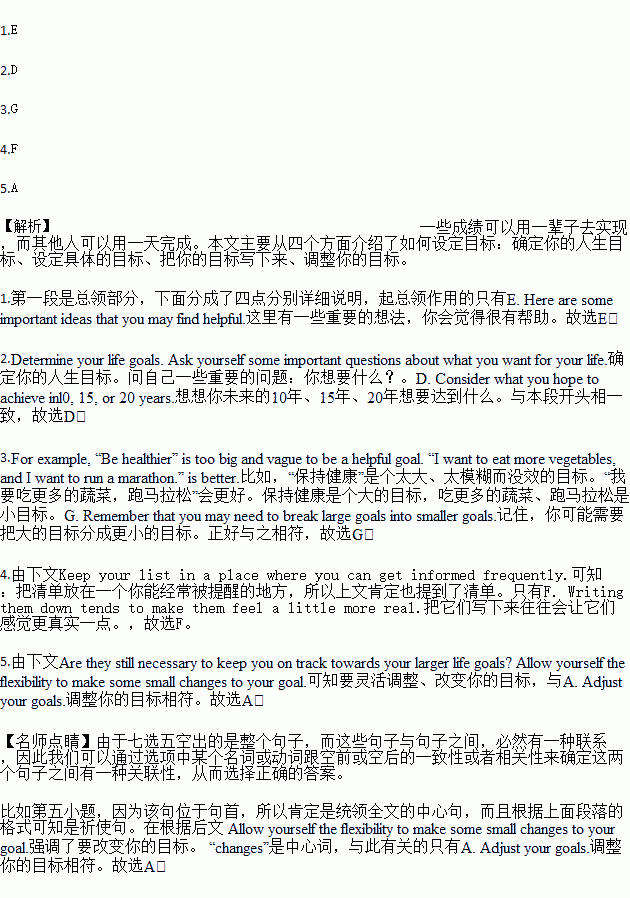题目内容
How to Set Goals
Whether you have small dreams or high expectations,setting goals allows you to plan how you want to move through life.Some achievements can take a lifetime to attain,while others can be completed in a day.1.
●Determine your life goals.Ask yourself some important questions about what you want for your life.What do you want to achieve: today,in a year,in your lifetime?The answers to this question can be as general as "I want to be happy,"or "I want to help people."2.
●Set specific goals.Be specific and realistic about what it is that you want to achieve.Research shows that setting a specific goal makes you more likely to achieve it.3.For example,"Be healthier"is too big and vague to be a helpful goal."I want to eat more vegetables,and I want to run a marathon."is better.
●Write out your goals.Be detailed,be clear,and include your steps.4.Keep your list in a place where you can get informed frequently.This will help keep you motivated.
●5.You may find yourself set in your ways concerning broad life goals,but take the time to re-evaluate your smaller goals.Are you accomplishing them according to your timeline?Are they still necessary to keep you on track towards your larger life goals?Allow yourself the flexibility to make some small changes to your goal.
A.Adjust your goals.
B.Track and measure your progress.
C.Having deadlines will keep you motivated.
D.Consider what you hope to achieve in 10,15,or 20 years.
E.Here are some important ideas that you may find helpful.
F.Writing them down tends to make them feel a little more real.
G.Remember that you may need to break large goals into smaller goals.
 各地期末复习特训卷系列答案
各地期末复习特训卷系列答案 小博士期末闯关100分系列答案
小博士期末闯关100分系列答案

 5' sheet of clear or slightly milky plastic, six feet of plastic tube, and a container— perhaps just a drinking cup — to catch the water. These pieces can be folded into a neat little pack and fastened on your belt.
5' sheet of clear or slightly milky plastic, six feet of plastic tube, and a container— perhaps just a drinking cup — to catch the water. These pieces can be folded into a neat little pack and fastened on your belt.